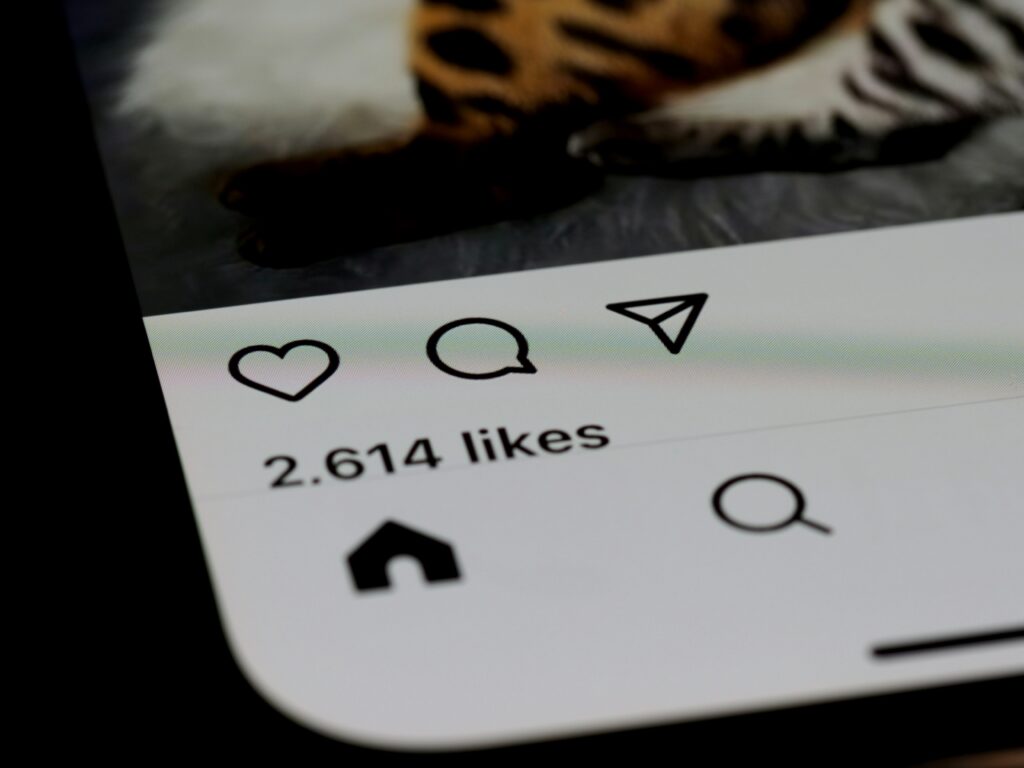How Diet Culture Contributes to Eating Disorders – and What We Can Do About It
Whether we realize it or not, we’ve all likely felt the pressures of diet culture. It pops up as backhanded compliments from coworkers and “wellness tips” on social media. It can cloud our vision of self when we look in a mirror or shift how we look at a menu. Diet culture is subtle yet pervasive, and, unfortunately, it’s deeply normalized. Under the guise of “health,” the impact of diet culture shows up in nearly everyone’s relationship with food and their bodies. It’s a frustrating petri dish to live in, and for some, it creates the conditions for developing a more serious issue: eating disorders.
Talking about diet culture can feel uncomfortable because it’s subversive. It’s often the status quo, with a history that stretches back long before tabloids and TikTok. But it doesn’t have to be the mainstream paradigm. When we understand how it shows up and causes harm, we can better protect ourselves and our community.
What Is Diet Culture?
As we pointed out, diet culture funnels into our lives from every angle. But its core message is the same: thinness equates to health and moral virtue. Within this message are a few repetitive themes. First, diet culture wants us to idealize weight loss and demonize weight gain. It also creates a hierarchy of food, labeling some as “good” or “clean” and others as “bad” or “guilty.” And perhaps most dangerously, it tells us that our bodies must be controlled, fixed, or shrunk to be worthy.
Diet Culture Evolves
What is additionally worrisome is that diet culture is adaptable. Over the decades, it’s gone from low-fat to low-carb, from “heroin chic” to “strong is the new skinny.” Today, it’s often disguised as “wellness” or “biohacking.” It uses vague language about “clean eating” or “discipline” to promote restriction, and it’s often repackaged as empowerment. It’s a cultural parasite. As soon as its true nature is revealed, it simply changes hosts and reinfects society.
Spotting Diet Culture in the Wild
Though diet culture messaging may change over the generations, once you know how to spot it, you’ll start seeing it everywhere. Though that might seem overwhelming, being able to identify the influence of diet culture can be the first step to unlearning these messages. Here are just a few common examples:
- “This, not that” food swaps that moralize macronutrients (e.g., “replace mayo with Greek yogurt” to cut fat, even though dietary fat is essential for health).
- Labeling foods as “guilt-free,” “sinful,” or “bad.”
- Influencers promoting extreme fitness routines or restrictive diets as “discipline.”
- The use of Body Mass Index (BMI) as a stand-alone health metric.
- Social media content that equates beauty with health or health with morality.
- Comments like “You look great, have you lost weight?” as though weight loss is inherently positive.
The Power Play
Diet culture’s tenacity begs the question: Who benefits? As with most oppressive systems, diet culture rewards those in power by keeping the rest of us distracted, vulnerable, and fighting for our lives. Back in the Middle Ages, the beneficiaries were religious leaders who encouraged fasting as a path to spiritual purity. Today, we can follow the money. It’s estimated that U.S. citizens spend $30 billion per year on diet products. Countless businesses benefit from diet culture. Through diet pills, weight loss supplements, and workout plans, capitalism and diet culture are best friends. Together, they exploit our insecurities to keep folks stuck in cycles of shame and spending.
Whether from malicious motivations or the passive acceptance of the status quo, diet culture misses the mark. As a result, it hits a more dangerous nerve: the development and reinforcement of eating disorders.
How Diet Culture Contributes to Eating Disorders
Eating disorders are serious, life-threatening mental illnesses shaped by a combination of genetic, psychological, and sociocultural influences. Of those sociocultural influences, diet culture sits firmly at the lead. In the U.S., diet culture is supported by the status quo and can play a role in triggering and sustaining disordered eating behaviors.
But let us help set the record straight: thinness does not equal health. Diet culture is strewn with misinformation, but as it’s the dominant frame of thinking, it can be hard to escape. Here, we take a closer look at how diet culture can contribute to eating disorder development.
The Idealization of Thinness
In Western cultures, thinness is often equated with success, health, self-control, and beauty. From childhood, we’re bombarded with messages that reinforce a narrow and unattainable “ideal body type.” These ideals are reinforced in everything from children’s media to fashion advertising to fitness influencers on social media.
Studies have found that internalization of the thin ideal is a significant predictor of body dissatisfaction, which in turn is a risk factor for the development of eating disorders. The pursuit of thinness becomes less about health and more about seeking social acceptance, often leading to harmful behaviors like calorie restriction, excessive exercise, and compulsive dieting.
Medical Fatphobia and Weight-Centric Health Models
One of the effects of diet culture is clear in our medical system. Despite growing awareness of weight-neutral approaches to health, many medical professionals still rely on BMI (a tool developed in the 1830s with no clinical application) to assess a patient’s health status. Patients in larger bodies are often told to lose weight for health reasons without comprehensive assessments, while those in thinner bodies may have serious health conditions that may be overlooked entirely.
For individuals vulnerable to disordered eating, hearing repeated messages about the “dangers” of weight gain from a trusted authority can reinforce disordered eating behaviors and internalized shame. Conversely, folks with eating disorders in higher-weight bodies may not be identified or treated at all, simply because they don’t “look” sick.
The Normalization of Disordered Behaviors
Rejecting diet culture truly feels like an uphill battle. While mental health carries a stigma, disordered eating behaviors are normalized, or even seen as virtuous. Think of how we praise people for skipping dessert, getting up early to exercise, or sticking to a rigid meal plan. Calorie-counting apps, wearable fitness trackers, and “clean eating” challenges may seem innocuous, but for those predisposed to eating disorders, they can serve as gateways into dangerous patterns.
A 2020 study found that exposure to “fitspiration” content on social media was correlated with increased body dissatisfaction when compared with travel inspiration content. A review of 50 relevant studies published in 2023 found that social media exposure increased risks for developing eating disorders and body image concerns. The takeaway? Society has normalized disordered eating. In the case of social media, it’s even made it trendy. The result? Mental illness is able to hide in plain sight.
The Feedback Loop of Diet Culture
These social pressures don’t exist in isolation; they create a feedback loop that reinforces harmful patterns. When disordered behaviors are validated or rewarded by peers, professionals, or media, individuals may delay seeking help or fail to recognize their behaviors as harmful at all. The longer this continues, the more entrenched the disorder becomes, and the harder it can be to reach out for help.
What Can We Do About It?
Because diet culture is so pervasive, it can feel impossible to topple. But we can battle system-wide narratives by drawing attention to their logical fallacies. This might not feel comfortable at first (undermining the status quo rarely is). However, when we change our words and actions, our thoughts learn to catch up. With enough practice, we can start shifting the needle to a more inclusive and supportive culture. Here are a few ways that we can start calling out and shifting how diet culture shows up in the world.
Reject the Morality of Health
It’s easier to see how diet culture glorifies thinness, but this stems from another misconstrued belief: that being “healthy” is morally good. Health is not a moral obligation. That’s not to say that everyone shouldn’t have access to high-quality health care and be able to live long, healthy lives. At The Alliance, we believe that healthcare access is a basic human right.
We don’t believe that you are a better or worse person based on your health status. No one should be shamed for living in a body that doesn’t meet conventional definitions of health. However, shame and stigma around health exist beyond mental illness and body size. To reject diet culture, we must also reject the morality of health.
Challenge Beauty Privilege
Another way to tackle diet culture is to challenge another of its foundational pillars: beauty privilege. Beauty privilege (and by extension, thin privilege, white privilege, and cis privilege) shapes how people are treated in the world. Recognize it, call it out, and work to value people for who they are, not how they look.
Rethink How You Compliment Others
On that note, one way we can move away from a looks-based value system is to rewire our brains around complimenting. Instead of commenting on someone’s body, try:
- “You seem really happy. What’s been going well lately?”
- “I love your style. What inspired this look?”
- “You’re glowing – something exciting going on?”
Through tiny actions built up over time, we can shift the cultural script.
Model a Healthy Relationship with Food and Your Body
Sometimes, it’s easier to change how we treat others than how we treat ourselves. Systemic narratives – like those driven by diet culture – are solidly imprinted in our self-talk. Whether you’ve struggled with an eating disorder or not, bring awareness to your personal relationship with food and your body. The goal? Be kind. Try to model for others that you respect your body and don’t tie your worth to your weight. Practice intuitive eating, actively challenge the weight stigma, and criticize the diet industry.
Push for Change in the Medical System
Ask your providers how they approach weight. If they make you uncomfortable, advocate for yourself or, if you’re able to, seek out a more affirming provider. When looking at doctors’ profiles, look for terms like weight-inclusive, specialization in eating disorders, and other identity-inclusive language. Red flag terms to watch out for include weight management, bariatrics, and certifications in obesity medicine.
Change Happens One Conversation at a Time
Knowing the disturbing ways that diet culture can affect folks’ mental and physical health, it’s natural to want to feel frustrated. We feel you! But we can’t fix everything overnight. Challenging diet culture starts with bringing awareness to it, then builds with every action we take to shift how we care for ourselves and others. These actions ripple out into the world through compassionate conversation.
At The Alliance, we’re here to support you on this journey. If diet culture has made it feel hard to be at home in your body, or if you are struggling with an eating disorder, you are not alone. We believe that care and support should be accessible to everyone and acknowledge that recovery for one person doesn’t look the same for another. On our helpline, licensed mental health professionals strive to find the best-fit resources for each person we talk to. We also offer virtual support groups for those struggling with eating disorders and their loved ones. We’re here for the conversation, we’re here to care, and we’re here for the long run.



